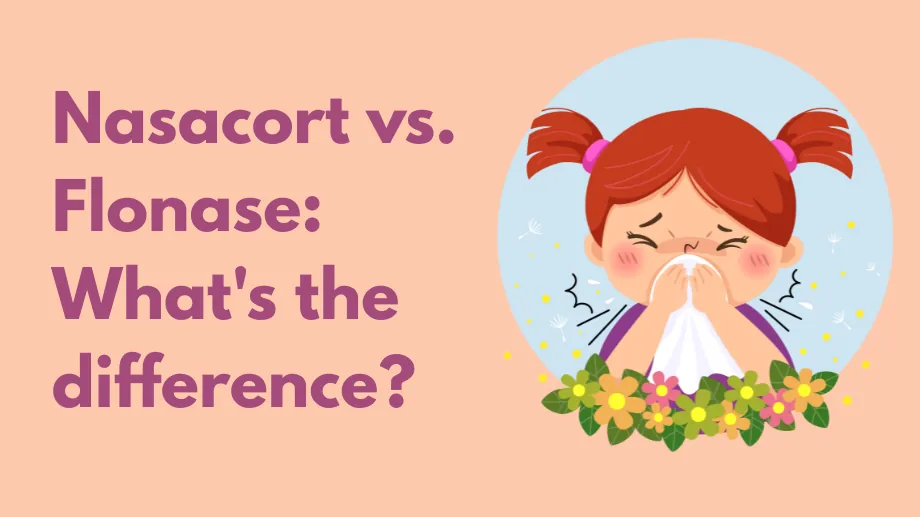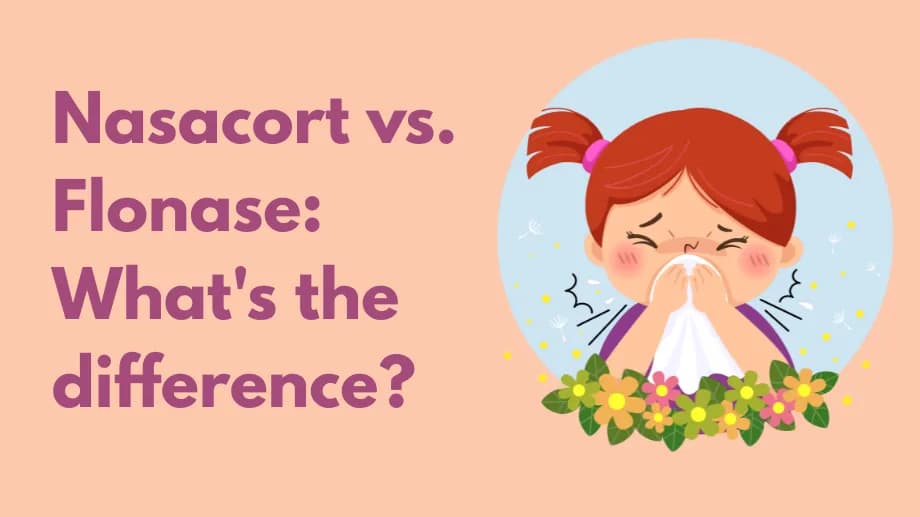Nasacort vs. Flonase: What’s the difference?

For those suffering from allergies, choosing the right medication is crucial. Flonase and Nasacort are two effective options available over-the-counter. Here, we explore their differences to help you make an informed decision.
Understanding Flonase and Nasacort
Both Flonase and Nasacort are steroid nasal sprays that help relieve allergy symptoms but differ in some aspects including active ingredients and usage recommendations.
What is Flonase?
Flonase is a nasal spray containing fluticasone propionate, effective for treating a variety of respiratory allergies.
What is Nasacort?
Nasacort, containing triamcinolone acetonide, is another steroid nasal spray used for similar purposes as Flonase.
How They Work
Both medications reduce inflammation by targeting your immune system’s response to allergens, effectively easing symptoms like runny nose and sneezing.
Side Effects
Common side effects include headache, sore throat, and nosebleeds. Serious reactions like allergic symptoms and eye problems can occur.
Drug Interactions
Both can interact with other medications, potentially altering their effects, especially those that affect liver enzymes for Flonase.
Dosage Recommendations
Flonase and Nasacort have different dosing guidelines, with specific instructions for adults and children based on symptom severity.
Effectiveness
Studies indicate that both are equally effective in managing allergy symptoms, with preferences varying based on individual responses.
Conclusion
Choosing between Flonase and Nasacort depends on personal health profiles and specific allergy symptoms. Consultation with a healthcare provider is recommended.
Sources
- Journal of Allergy and Clinical Immunology
- International Archives of Allergy and Immunology
- U.S. Food and Drug Administration (FDA)
